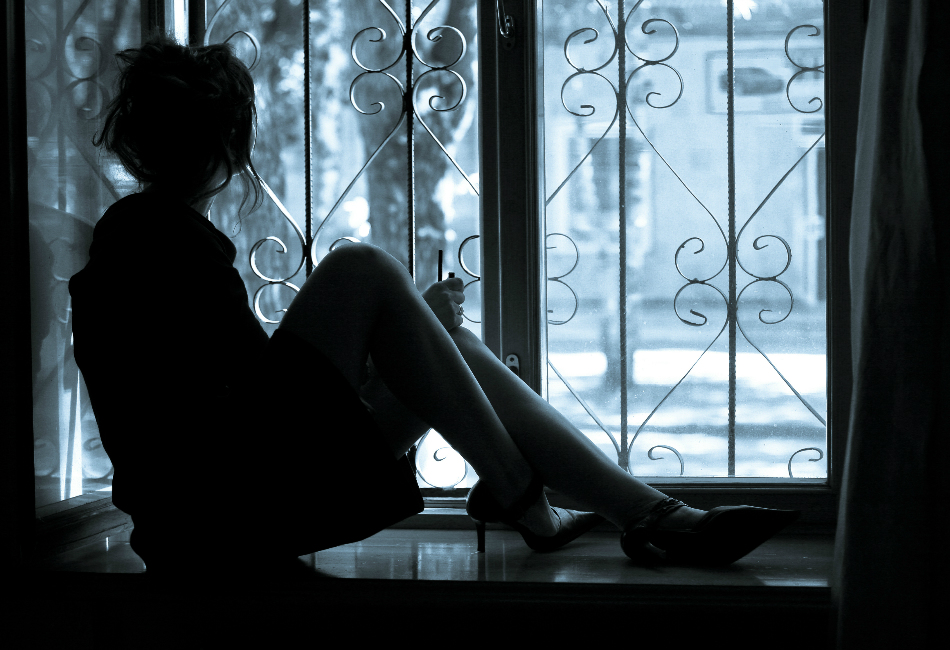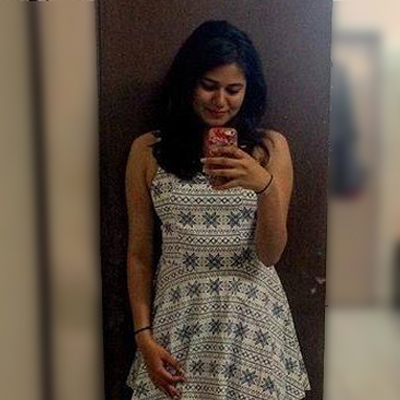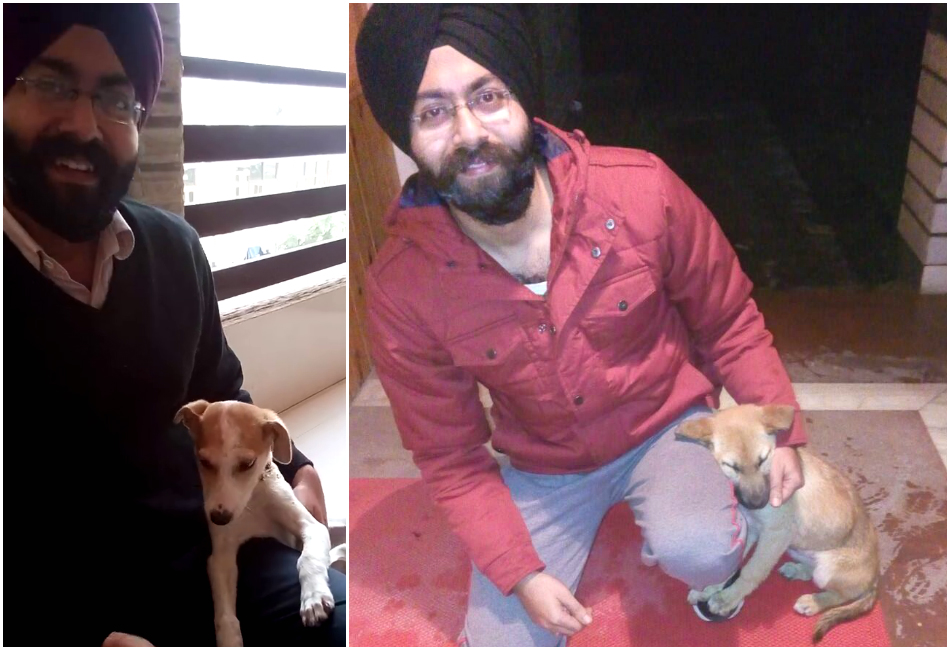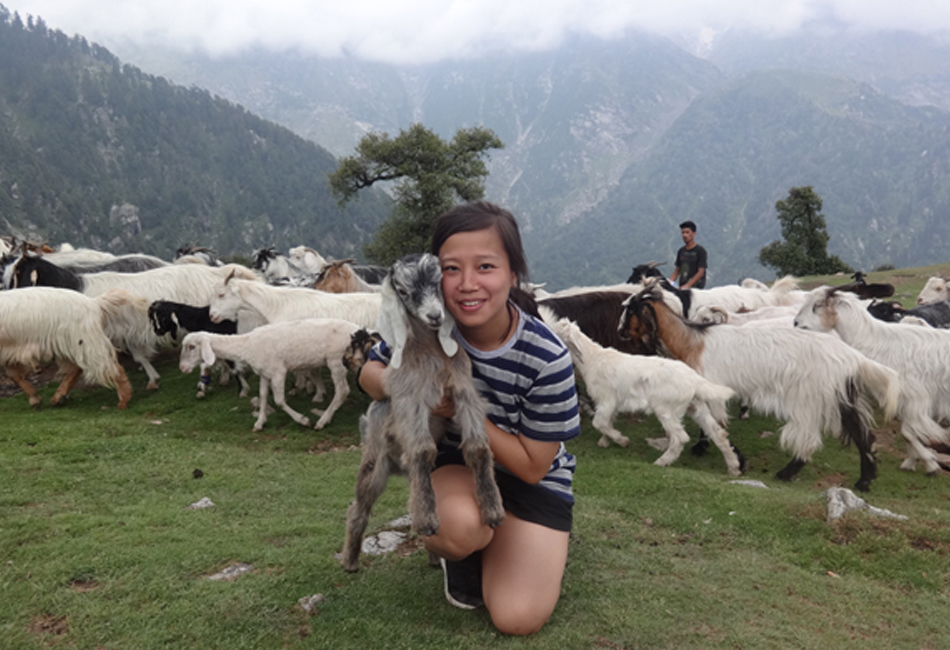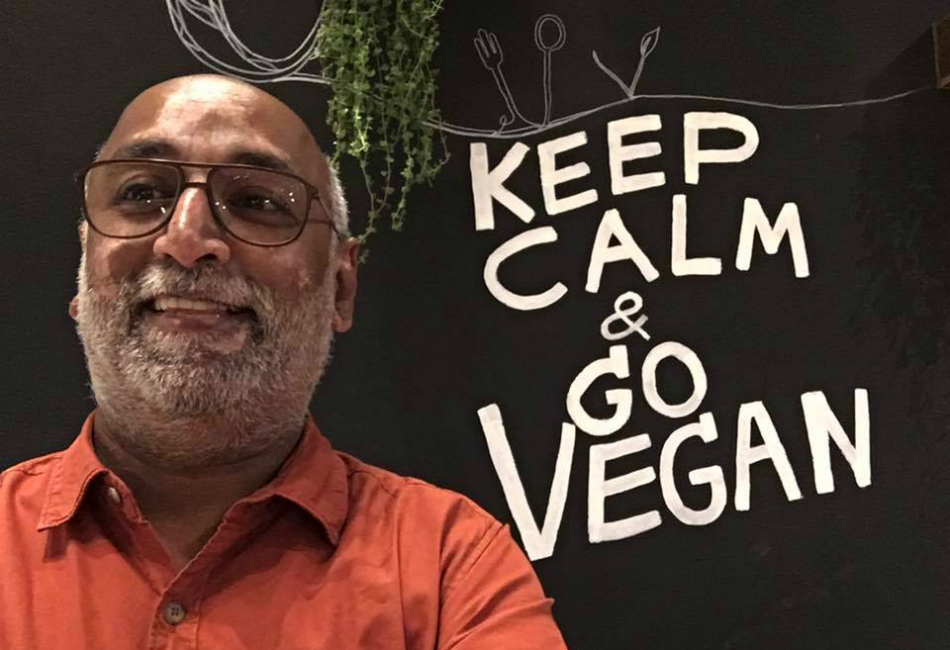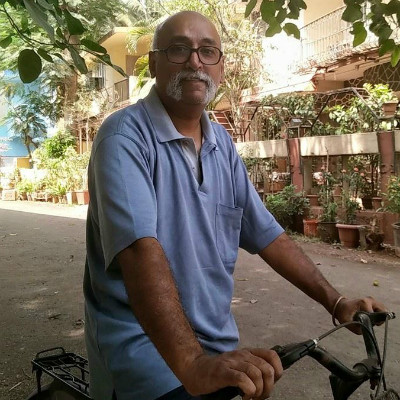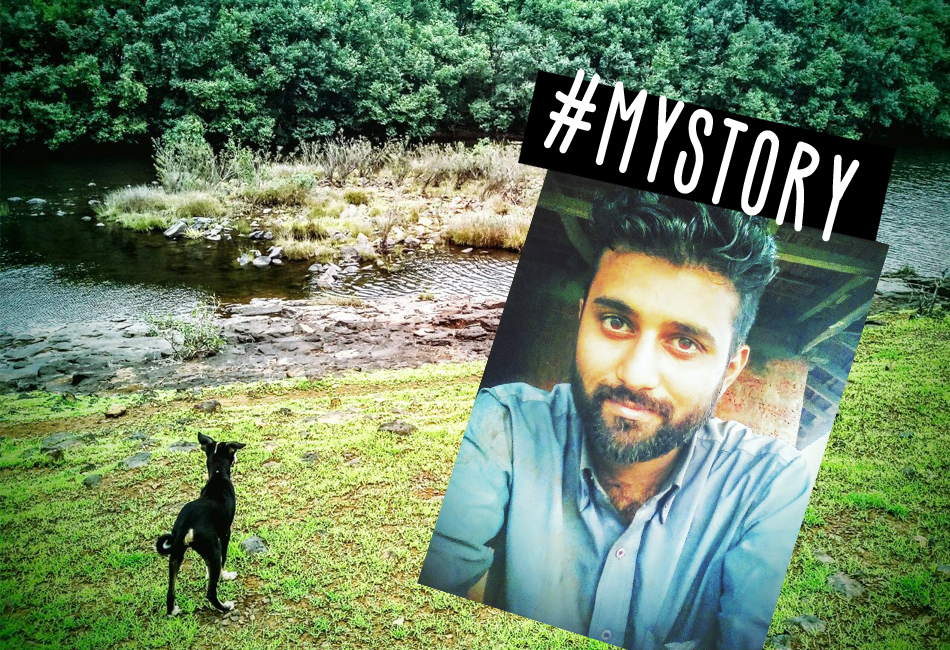Download Free Vegan Starter Kit -
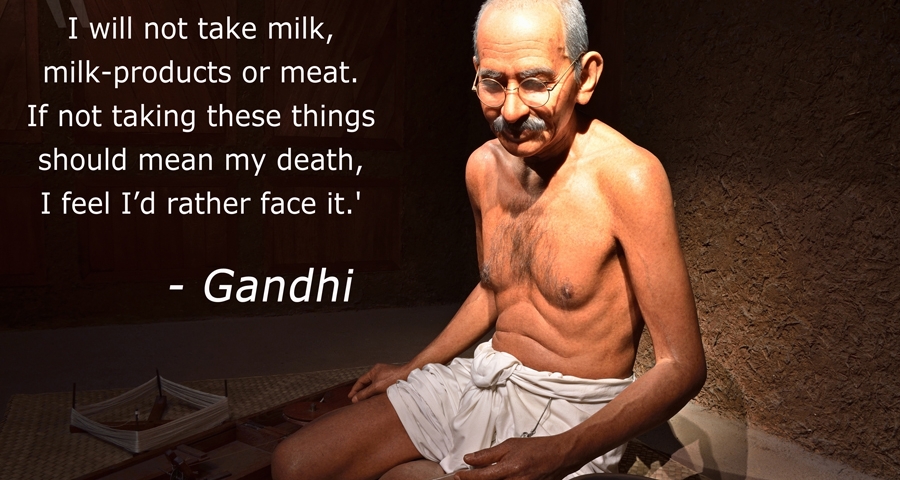
Did Mahatma Gandhi Quit Dairy & Start Leading A Vegan Life?
M.K. Gandhi, a man of action, who won the world by his message of ahimsa (non-violence), felt it within his body & spirit. He believed in being the change he wished to see in the world, and one such benevolent change was his vow to never consume meat, milk or milk products.
His story and experiments are great inspiration for anyone in favour of living a cruelty-free life. Let us take a sneak-peak in this great man’s experiments that inspired many people in the East and in the West to start taking up vegetarianism.
The Gandhis were Vaishnavas, and hence staunch followers of vegetarianism. Being born and bred in such tradition, M.K. Gandhi was opposed to meat-eating from the start, but it was Gandhi’s vow to give up milk and milk products that made him close to being a vegan.
He stood by his vows as much as his mortal being allowed and spread the message of vegetarianism by inspiring others through his actions and words.
He slipped unwillingly when he was in high-school and of an age when children are easily influenced. A friend who was notorious and fearless urged him to eat meat on the argument that it will make Gandhi strong and fearless, too. Gandhi’s mind was bent on reform, and he wanted himself and his countrymen to be daring to be able to defeat the Englishmen. And as they say, ‘a man takes in a vice more readily than virtue.’ He tried eating goat meat but ended up having nightmares that filled him with remorse. Soon, he gave up meat-eating on the account that he could not lie to his parents, and that “they would have been deeply disturbed if they found out about it.”
.jpg)
When he was leaving for England at the age of 18, in 1888, he vowed to not touch wine, women and meat, after which his mother gave him the permission to go. He abstained from meat during his voyage to England, and even upon reaching there. This caused him a lot of inconveniences. A lot of people laughed at him, and some well-wishers reasoned with him to eat meat, but he survived on bread until he found a good vegetarian restaurant.
He was introduced to various definitions of vegetarianism in England, where he read several books on it. All the writers that he read about had ethically arrived at the conclusion that ‘man's supremacy over the lower animals meant not that the former should prey upon the latter, but that the higher should protect the lower, and that there should be mutual aid between the two as between man and man.’
After reading one such book called, Salt's Plea for Vegetarianism, Gandhi made an intellectual choice, not because of his parents but because he wanted to, in favour of vegetarianism, the spread of which then became his mission. This was his first step that brought him close to being vegan.
One of the definitions of vegetarianism that Gandhi read during this time was the same as that of veganism. It suggested ‘abstention from all animal products, thus covering eggs and milk alike.’
An added advantage for Gandhi, living alone in England on limited means, was that a vegetarian diet was hygienic and the least expensive.
Another lifestyle choice that brought him close to veganism was, in South Africa, when upon being intellectually prodded by a friend and poet Raychandbhai, he started contemplating to take the vow of brahmacharya, the perfect observance of which means the realization of Brahman or universe. He learnt that milk stimulates animal passion, and so the thought of giving up milk in the interest of self-restraint grew upon him. During this time, he came across some literature from Calcutta, ‘describing the tortures to which cows and buffaloes were subjected by their keepers.’ This had a profound effect on him.
At Tolstoy Farm in 1912, in a discussion about milk, Mr Kallenbach said to Gandhi, 'We constantly talk about the harmful effects of milk. Why then do not we give it up? It is certainly not necessary.' Gandhi warmly welcomed the suggestion, and they pledged to give up milk there and then.
Even though Gandhi believed that milk diet makes the brahmacharya vow difficult to observe, he always kept looking to find a fruit or vegetable substitutes for milk which are equally nourishing and digestible.
Gandhi later wrote a book called ‘English as A Guide to Health’ that profoundly influenced the life of many people around the world. It was his firm conviction that ‘man need take no milk at all, beyond the mother's milk that he takes as a baby.’
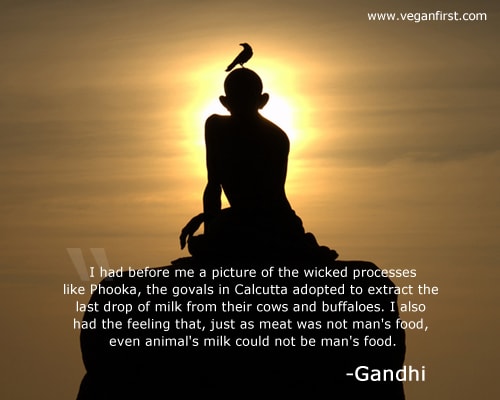
Also Read: This Dry Oil By Disguise Cosmetics Belongs In Your Winter Skincare Kit
At many instances, his vows to abstain from meat, milk and milk products were tested.
Once, in Durban, when Satyagraha was going on, Kasturba, Gandhi’s wife, had a frequent haemorrhage. When the doctor deceivingly gave her beef tea, he opposed it and held his views on vegetarianism, and Kasturba's faith was unshakable, too.
At another time, when Gandhi was in England as part of the Volunteer Corps during World War I, he had an attack of pleurisy. At this time, his dietetic experiments were going on. He was on a fruitarian diet, and he completely abstained from milk, cereals, etc. When his doctor urged him to resume milk and cereals, he was unconvinced. When G.K. Gokhale himself insisted that Gandhi must take whatever the doctor prescribed for his health, Gandhi decided to go according to the dictates of his inner voice. He adhered to his resolve to abstain from milk with the argument, ‘I had before me a picture of the wicked processes like Phooka, the govals in Calcutta adopted to extract the last drop of milk from their cows and buffaloes. I also had the feeling that, just as meat was not man's food, even animal's milk could not be man's food.’
When questioned by Gokhale, he replied, ‘I am willing to yield on all points except the one about which I beg you not to press me. I will not take milk, milk-products or meat. If not taking these things should mean my death, I feel I’d rather face it.' Gokhale respected his decision. When persistence of pleurisy caused him anxiety, he called in Dr Allinson who treated him by dietetic modifications. Instead of asking Gandhi to take milk, the doctor put him on a fat-less diet that restored his health.
Gandhi’s vow was put to test again when he was on a campaign in Kheda to recruit young Indian men to fight for the British Army. During long and tiring marches, an error in diet caused an attack of dysentery that led him near death's door. This illness protracted and made him test his principles. He said, ‘he tried in vain to rebuild a shattered constitution without milk.’
He moved to Matheran, where Dr Dalal’s capacity for taking instantaneous decisions captured him. The doctor said, 'I cannot rebuild your body unless you take milk. If in addition, you would take iron and arsenic injections, I would guarantee fully to renovate your constitution.'
'You can give me the injections,' Gandhi replied, 'but milk is a different question; I have a vow against it.'
When enquired, Gandhi explained how he had come to know that the cow and the buffalo were subjected to the process of phooka, and hence had conceived a strong dislike for milk. The doctor then argued that he could take goat’s milk without breaking his original vow.
The vow, of course, meant giving up of all types of milk, but he had only mother cow's and mother buffalo's milk in mind when he took the vow. Also, the idea of living to lead a campaign against the Rowlatt Act had possessed him, and in the spirit of fighting for the country’s freedom, he somehow beguiled himself into emphasizing just the letter of the vow and decided to take goat's milk.
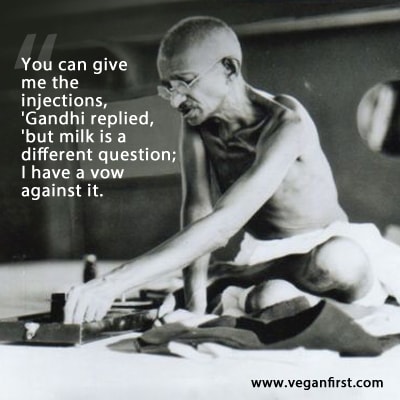
He said, ‘I was fully conscious when I started taking mother goat's milk, that the spirit of my vow was destroyed. Consequently one of the greatest experiments in my life came to a stop.’
Therefore, even though Gandhi physically went a step back on his vows, he was conscious of the setback, and in spirit, he maintained his purity, which reflected in his motto of non-violence. That motto inspired millions of people around the world at a time of great violence, and it still shapes the reasons of many. It also happens to be the heart of the concept of veganism.
Gandhi might not have been vegan by the letter, but he was every bit of it at heart. May we complete in actuality what Gandhi started in spirit!
Like This?
Read: Vegan and Eco-Activist Sowmya Reddy is an MLA in Bangalore
Read More: #VeganStories: Kamal, A Charted Accountant By The Day, Animal Lover For Life!
AUTHOR

trending
Be a Vegan First Informer
Send us buzzworthy news and updates
Explore
Contact Us
About Us
Stay Connected
Copyright ⓒ 2017-2023. VEGAN PASSION PRIVATE LIMITED. All Rights reserved.
For more information, please write to hello@veganfirst.com
Registered Office Address: 55, 2nd floor, lane 2, Westend Marg, Saidullajab, Near Saket Metro Station, New Delhi, Gadaipur, New Delhi South West Delhi, DL

2.png)

.png)

.png)
2.png)
2.png)
2.png)


1.png)

